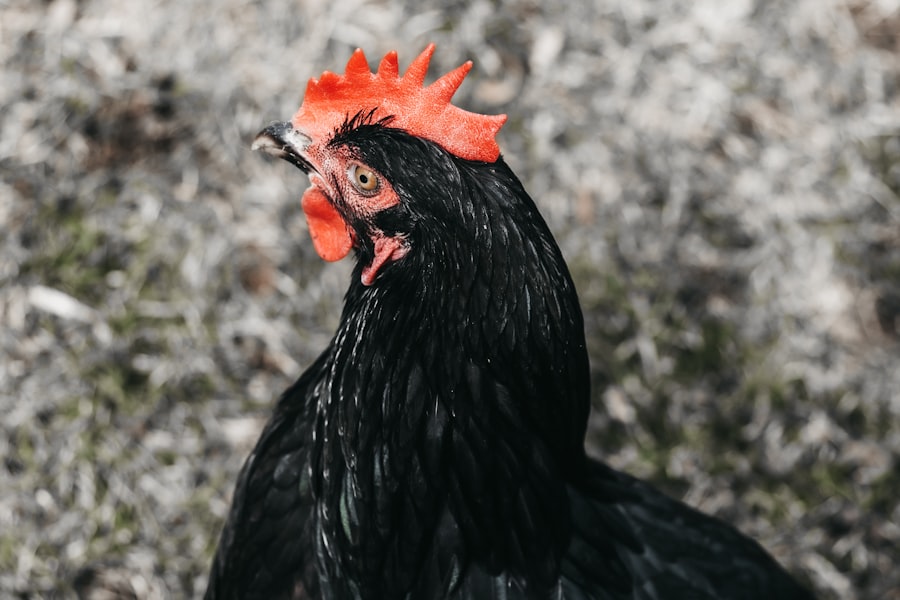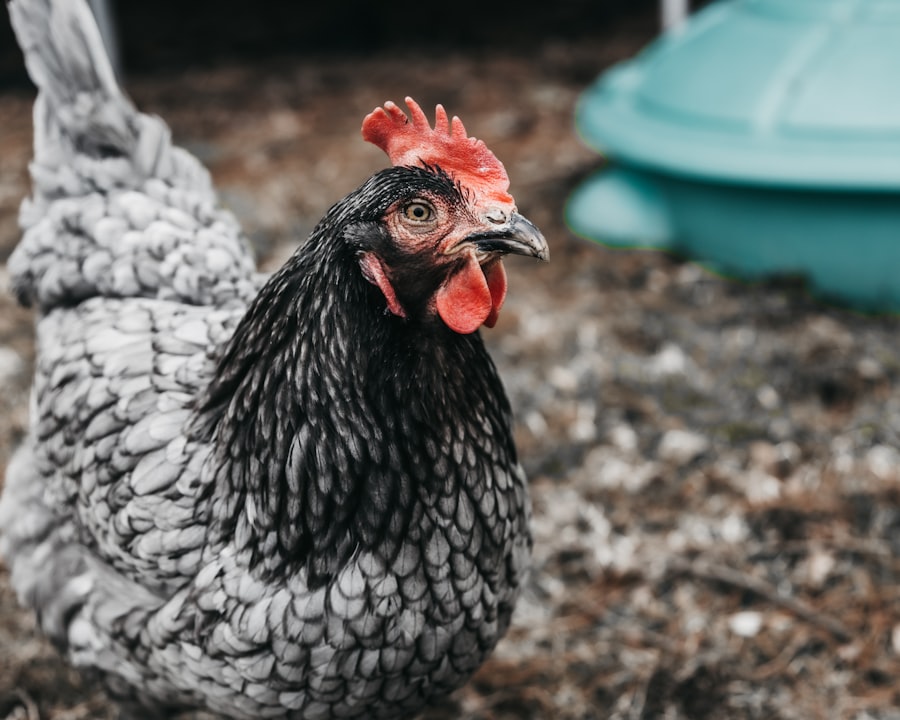Weasels are small, carnivorous mammals renowned for their agility and proficiency in hunting small prey. They present a significant threat to chickens and other small livestock due to their ability to infiltrate chicken coops and prey on the birds. Weasels are particularly dangerous to chickens because of their capacity to squeeze through small openings and their skill in killing multiple birds in a single attack.
These predators are also known for their tendency to kill for sport, often leaving behind numerous dead chickens even when they do not intend to consume them. Weasels pose a serious risk to the livelihood of chicken farmers, as they can rapidly decimate a flock if not properly managed. Weasels are highly adaptable to various environments, making them a widespread threat to chicken coops globally.
They are adept climbers, capable of easily accessing chicken coops by scaling fences or trees. Furthermore, weasels are recognized for their intelligence and cunning, which makes them challenging to trap or deter using conventional methods. It is crucial for chicken farmers to comprehend the threat that weasels pose to their flocks in order to implement effective protective measures against these predators.
Table of Contents
- 1 Identifying signs of weasel presence in your chicken coop
- 2 Securing your chicken coop to prevent weasel entry
- 3 Using natural deterrents to keep weasels away from your chickens
- 4 Monitoring and maintaining your chicken coop for weasel prevention
- 5 Seeking professional help for persistent weasel problems
- 6 Educating yourself on local laws and regulations regarding weasel control
- 7 FAQs
- 7.1 What are weasels and why are they a threat to chickens?
- 7.2 What are some signs that weasels are attacking my chickens?
- 7.3 How can I keep weasels out of my chicken coop?
- 7.4 Are there any natural predators of weasels that can help keep them away from my chickens?
- 7.5 What should I do if I suspect weasels are attacking my chickens?
Key Takeaways
- Weasels pose a significant threat to chickens, as they are skilled predators that can easily enter chicken coops and kill multiple birds.
- Signs of weasel presence in your chicken coop include missing or dead chickens, as well as small, gnawed openings in the coop walls or floor.
- Securing your chicken coop against weasels involves using hardware cloth with small mesh, burying it at least 12 inches deep around the perimeter, and sealing any potential entry points.
- Natural deterrents such as predator urine, strong-smelling plants, and motion-activated lights can help keep weasels away from your chickens.
- Regularly monitoring and maintaining your chicken coop, including promptly repairing any damage and removing potential weasel attractants, is crucial for effective weasel prevention.
- If you are unable to control weasel infestations on your own, seek professional help from pest control experts or wildlife removal services.
- Educate yourself on local laws and regulations regarding weasel control, as some methods may be restricted or require permits in certain areas.
Identifying signs of weasel presence in your chicken coop
Unexplained Disappearance of Chickens
One of the most common signs of weasel presence in a chicken coop is the sudden and unexplained disappearance of chickens. Often, there are no obvious signs of forced entry or struggle, making it essential for farmers to be vigilant and monitor their flock regularly. Weasels are known to kill multiple birds in a single attack, so a sudden decrease in the number of chickens in the coop may indicate a weasel infestation.
Distinguishing Characteristics of Weasel Presence
Weasels have a distinctive musky odor, which farmers may notice in and around the coop if weasels are present. Another sign of weasel presence is the presence of small, bloody bite marks on the neck or head of the chickens. Weasels are skilled hunters and often kill their prey by biting them on the back of the neck, leaving behind small puncture wounds.
Other Signs of Weasel Presence
Farmers may also notice small, narrow tunnels or burrows near the coop, as weasels are known for their ability to dig and create underground pathways. Regular inspections of the chicken coop are crucial to identify these signs of weasel presence and take prompt action to protect the flock.
Securing your chicken coop to prevent weasel entry

Securing your chicken coop is essential for preventing weasel entry and protecting your flock from these predators. One of the most important steps in securing your coop is to ensure that all openings, including doors, windows, and vents, are securely sealed with heavy-duty wire mesh or hardware cloth. Weasels are skilled at squeezing through small openings, so it is important to use a mesh with small enough gaps to prevent them from entering the coop.
Additionally, it is important to regularly inspect the coop for any signs of wear or damage to the mesh and make repairs as needed. Another important step in securing your coop is to install predator-proof locks on all doors and windows. Weasels are known for their ability to manipulate latches and locks, so it is important to use locks that are specifically designed to prevent entry by small predators.
It is also important to secure any gaps or holes in the walls or floor of the coop, as weasels are skilled at digging and burrowing. Farmers should regularly inspect the perimeter of the coop for any signs of digging or burrowing and take appropriate action to fill in any gaps or holes.
Using natural deterrents to keep weasels away from your chickens
In addition to securing your chicken coop, there are several natural deterrents that can be used to keep weasels away from your chickens. One effective deterrent is the use of predator urine, such as that from foxes or coyotes, around the perimeter of the coop. Weasels are known for their territorial behavior and may be deterred by the scent of a larger predator in the area.
Predator urine can be purchased from hunting supply stores and applied around the perimeter of the coop at regular intervals. Another natural deterrent is the use of strong-smelling plants, such as garlic or mint, around the coop. Weasels have a keen sense of smell and may be deterred by strong odors.
Farmers can plant these herbs around the perimeter of the coop or use them to create a natural barrier by hanging them in bundles around the coop. Additionally, some farmers have had success with using motion-activated lights or sprinkler systems to startle and deter weasels from approaching the coop. It is important for farmers to regularly rotate and refresh these natural deterrents in order to maintain their effectiveness.
Weasels are intelligent animals and may become accustomed to certain scents or sounds over time. By regularly changing up the deterrents, farmers can help ensure that they remain effective at keeping weasels away from their chickens.
Monitoring and maintaining your chicken coop for weasel prevention
Regular monitoring and maintenance of your chicken coop is essential for preventing weasel infestations and protecting your flock. Farmers should regularly inspect the perimeter of the coop for any signs of wear or damage to the mesh or hardware cloth and make repairs as needed. It is also important to regularly check for any signs of digging or burrowing around the coop and take appropriate action to fill in any gaps or holes.
In addition to regular inspections, farmers should also consider installing security cameras around the perimeter of the coop to monitor for any signs of weasel activity. Cameras can provide valuable insight into the behavior of weasels and help farmers identify any potential entry points or vulnerabilities in their coop. Regularly reviewing camera footage can also help farmers identify patterns in weasel activity and take appropriate action to prevent future infestations.
It is also important for farmers to maintain a clean and organized coop in order to prevent weasel infestations. Weasels are attracted to areas with ample food sources and hiding spots, so it is important to regularly clean up any spilled feed or debris around the coop. Additionally, farmers should regularly remove any potential hiding spots, such as brush piles or tall grass, from around the perimeter of the coop.
Seeking professional help for persistent weasel problems

Seeking Professional Help
If you’ve tried various deterrents and secured your coop but continue to experience weasel infestations, it may be time to seek help from a professional pest control service. Pest control professionals have experience dealing with weasel infestations and can provide valuable insight into effective control methods.
Effective Control Methods
Professional pest control services may use a combination of trapping, exclusion, and deterrent methods to effectively control weasel infestations. Trapping can be an effective method for removing individual weasels from the area, while exclusion methods can help prevent future infestations by securing potential entry points. Additionally, pest control professionals may have access to specialized deterrents or repellents that can effectively keep weasels away from the coop.
Choosing the Right Pest Control Service
It is important for farmers to thoroughly research and vet any pest control service before enlisting their help. Farmers should seek out reputable companies with experience dealing specifically with weasel infestations and ask for references from other satisfied customers. By enlisting professional help, farmers can effectively address persistent weasel problems and protect their flock from further harm.
Educating yourself on local laws and regulations regarding weasel control
Before taking any action to control weasel infestations on your property, it is important to educate yourself on local laws and regulations regarding weasel control. In some areas, certain methods of trapping or killing weasels may be prohibited or restricted by law. It is important for farmers to familiarize themselves with these laws in order to ensure that they are in compliance while addressing weasel infestations.
Additionally, some areas may have specific regulations regarding the use of certain deterrents or repellents for controlling weasels. Farmers should research local regulations and consult with local wildlife authorities before using any natural deterrents or repellents around their coop. By understanding local laws and regulations, farmers can ensure that they are taking appropriate action to control weasel infestations while remaining in compliance with the law.
It is also important for farmers to consider the potential impact of weasel control methods on other wildlife in the area. Some control methods, such as trapping or poisoning, may pose a risk to non-target species if not used carefully. Farmers should consider the potential impact on other wildlife when choosing control methods and take appropriate precautions to minimize any unintended harm.
In conclusion, understanding the threat of weasels to chickens is essential for protecting your flock from these predators. By identifying signs of weasel presence in your chicken coop and taking steps to secure the coop, use natural deterrents, monitor and maintain the coop, seek professional help when needed, and educate yourself on local laws and regulations regarding weasel control, you can effectively prevent weasel infestations and protect your chickens from harm.
If you’re looking for tips on how to keep weasels out of your chicken coop, you may also be interested in learning how to care for goslings. Check out this article for helpful information on raising and caring for goslings.
FAQs
What are weasels and why are they a threat to chickens?
Weasels are small, carnivorous mammals that are known to prey on chickens and other small animals. They are a threat to chickens because they can easily enter chicken coops and kill multiple birds in a single attack.
What are some signs that weasels are attacking my chickens?
Signs of weasel attacks on chickens include missing birds, bite marks on the neck or head of the chickens, and the presence of small, narrow entry points in the chicken coop.
How can I keep weasels out of my chicken coop?
To keep weasels out of your chicken coop, you can use hardware cloth with small mesh to cover all openings, including windows and vents. Additionally, you can install motion-activated lights or sound devices to deter weasels from approaching the coop.
Are there any natural predators of weasels that can help keep them away from my chickens?
Some natural predators of weasels include larger carnivorous mammals such as foxes, coyotes, and birds of prey. Encouraging the presence of these predators in the area around your chicken coop may help deter weasels.
What should I do if I suspect weasels are attacking my chickens?
If you suspect weasels are attacking your chickens, it is important to take immediate action to protect your birds. Secure the chicken coop by repairing any entry points and consider setting traps or contacting a professional wildlife removal service for assistance.
Meet Walter, the feathered-friend fanatic of Florida! Nestled in the sunshine state, Walter struts through life with his feathered companions, clucking his way to happiness. With a coop that’s fancier than a five-star hotel, he’s the Don Juan of the chicken world. When he’s not teaching his hens to do the cha-cha, you’ll find him in a heated debate with his prized rooster, Sir Clucks-a-Lot. Walter’s poultry passion is no yolk; he’s the sunny-side-up guy you never knew you needed in your flock of friends!







